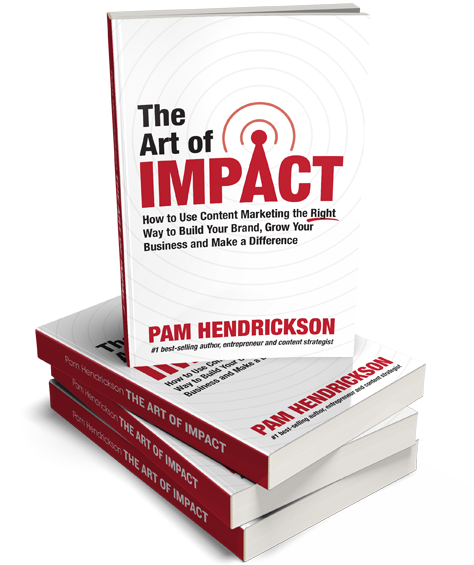For Sir Richard Branson, business is just another adventure. What an amazing mindset.
I read a recent BBC article in which Richard Branson compared the life of an entrepreneur to that of an explorer. If anyone is qualified to make this comparison, it’s Branson, a man as famous for his kitesurfing foray across the English Channel and record-breaking trip from Japan to Canada via air balloon as he is for his entrepreneurship.
 Branson went on to make the point that even though we entrepreneurs often find ourselves backed up against a wall, the important thing is to do whatever we need to do to overcome each problem as it comes, and keep moving forward.
Branson went on to make the point that even though we entrepreneurs often find ourselves backed up against a wall, the important thing is to do whatever we need to do to overcome each problem as it comes, and keep moving forward.
Over the years, I’ve learned a few things about dealing with business speed bumps. When I make a mistake, it often feels like a disaster in the moment. However, with time, I can (usually) look back and learn from the experience (and maybe even laugh about it)! Perspective is a beautiful thing. 🙂
I wanted to share with you four tips I’ve learned to get better perspective and overcome business challenges as they present themselves (as they inevitably will):
1. Make Room for Mistakes
Planning ahead for mistakes may feel pessimistic to some people, but I think it’s just good sense. In fact, studies show that when people are allowed to make mistakes, they are significantly less likely to make those mistakes. Anticipating speed bumps also means that you will be able to respond better to anything that might happen. Whenever I start a big project, I always ask myself, "What could go wrong? And what will we do to fix it?" Then, when a problem presents itself, I’m often prepared to act quickly with a backup plan.
2. Reconnect to Your Why
I can sometimes find calmness in a storm when I remind myself why I do what I do: to give back to my husband and two boys by being around more often and being more present during our time together. If you’re struggling, ask yourself what your purpose was for starting your business in the first place. Was it financial freedom? More time to spend with your family? A career you felt passionate about? Reassociate with the emotion and drive that inspired you to start your business, and you’ll often move yourself into a calmer state of mind. It might even help to keep a reminder near your workspace, so you’re reminded every day of why you decided to do this in the first place. I’ve got our family pictures above my desk and they encourage me to persevere through my challenges.
3. Remember Who You’re Doing This For
I believe we each have a contribution to make to this world, and that there are people out there who need to hear your message. If you feel overwhelmed by a challenge, bring yur current and future customers to mind. How are your products or services making their lives better? And, if you don’t help them, who will? Every day, I get to help people turn their passions into real businesses. When I get frustrated, I anchor myself back to that mission and I find a way to take the next step forward, and the next, until I’ve created a solution.
4. Reach Out for Support
A trusted network of select friends and colleagues who can give you advice and support will help you get through the challenges you face—and also help you create a sense of community, even when you’re flying solo. I have a couple of very close friends who I bounce ideas around with, and those discussions give me a much greater sense of certainty. For that, I’m extremely grateful.
The bottom line is this: as an entrepreneur, you’re going to run into challenges. I hope these four tips help you keep the perspective you need to continue to move forward. 🙂
By the way, if you want to read that article about Richard Branson, you’ll find it here on the BBC website.
I’m curious: How do you deal with business roadblocks as an adventurer? I’d love to hear from you in the comments.




Speaking as a high school teacher, the biggest obstacle to kids learning critical thinking skills is the fear of making mistakes or being wrong. If you do nothing, you don’t go anywhere. If you do something, either it’s right and you’re making progress, or it’s wrong and you’ve just learned what the right path is.
Some years back, I made up a parable about the importance of making a decision, even if it turns out to be the wrong one: Two salesmen were walking through a desert to sell their wares in the next town. After several hours of walking, they came to a fork in the road. Both men stopped, not knowing which way led to the town. One said, “I have no idea which way to go, so I’ll wait here and ask the next person who comes by.” The other said, “I don’t know either, but I’m going to just pick the left fork and see if it leads to the town. Good luck! Maybe I’ll see you in the town!” And he started walking.
After walking for half a day, the second salesman had not seen any sign of a town, and he realized that he must have taken the wrong path. So he turned around and went back. When he got back to the fork, it was late, and the first salesman was still there, fast asleep. The second salesman said to himself, “Now I know which way to go. I’ll start down the right path this time, and camp just out of sight. In the morning, I’ll continue into the town.
The next morning, the second salesman walked into the town, where he enjoyed the opportunity to sell his wares without his competitor, who was still waiting to be told which way to go.